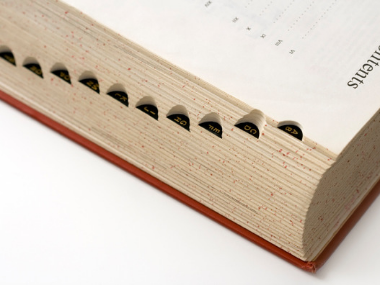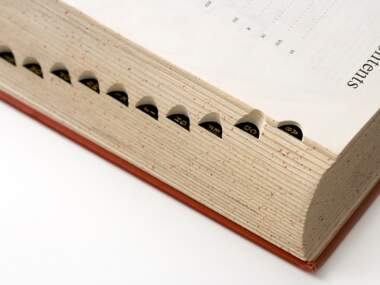One Word
One Word: KANKEDORT

i.m. Julia Briggs
Was Troilus nought in a kankedort?
Chaucer, Troilus and Criseyde, II. 1752
Isolate, peculiar, rare, obsolete, it surfaces in the language only once, according to the latest edition of the Oxford English Dictionary: in Chaucer's Troilus and Criseyde. "Kankedort": speculatively defined as a "difficult situation" by Larry B. Benson, editor of The Riverside Chaucer (OUP, 1987); further glossed in the OED as "a state of suspense; a critical position; an awkward affair."
A lonely word whose definition can only be inferred from its single, immediate context in Chaucer's poem: Troilus awaits his beloved, Criseyde, who is being led by her uncle Pandarus to Troilus' room for their first love-meeting. Pandarus—who throughout the poem behaves like unto his name, serving as pander, go-between, near-pimp of Criseyde. Here at the very end of book II the lovesick Troilus awaits his long-sought love, and nervously considers how to declare his passion:
And was the firste tyme he shulde hire preye
Of love; O mighty God, what shal he seye?
(II. 1756-7)
Was Troilus nought in a kankedort? Was he not at a difficult, critical moment, that abyssal moment before erotic disclosure? Was he not worrying about the right words to say, the right words to elicit the right response, the lover's answering love, the body perhaps then pledged, then possessed? It's only humans as far as we know who can use words to get bodies together. The word as the body evanesced in a breath, a breath bearing intelligible sound. What shal he seye? What does he say?
Lo, the alderfirste word that hym asterte
Was, twyes, "Mercy, mercy, swete herte!"
(III. 97-8)
"Language is fossil poetry," Emerson declared in his essay The Poet (1844); some poetry becomes the amber in which the delicate fossils of a language are embedded. Was Troilus nought in a kankedort?
"A dream of a common language," Adrienne Rich imagined, a difficult dream. Kankedort falls out of this dream. Words become obsolete, languages die, texts the tombs of the dead only some learn to reanimate. Kankedort: A hapax legomenon, to invoke a technical term of the Greek grammarians, themselves interested especially in those words that appeared only once in the Homeric corpus. Kankedort a hapax in Chaucer's Troilus and Criseyde but also in the English language itself. The OED marks "kankedort" as not only rare but obsolete.
You find yourself in a "difficult situation."
You're asked to choose a word that has meant something to you, an invitation that lends itself to thoughts of the exceptional word, the unusual word, of a word that lodged itself like a mystery, a word that gathered around it associations so personal and ramifying that the word itself becomes the sign of an epoch not only in Troilus' life but in yours. There are words that the dictionary deems "rare," "obsolete," "slang," "obscene": lexicographers can debate such classifications and have. There are words that are "rare" for the general and words that are "rare" for you, words that are "obsolete" in the language and those that are "obsolete" for you: "Christian"; "fuckwad"; "wife." That your mind runs this way, running aground on the reef of "kankedort," of "dulcarnoun" (Troilus and Criseyde III. 931), of "spatchcocked," "onomastics" and other such shoals shows your tendency toward verbal fetishism, or more precisely lexical fetishism: one could ponder the depths of the commonest words—"thing," or "think" (as Wordsworth does, incessantly); "love," "kind" (see Shakespeare); the overwhelming power encoded in the humblest parts of speech, prepositions or articles, through which every basic relation shines forth. On. With. Together. Toward. Between. The the (Wallace Stevens).
To focus on the word is to focus on "a part of speech"; yet no one I know ever spontaneously spoke the word "kankedort." Perhaps only Chaucer himself ever spoke the word "kankedort." He was charting his way through one of the four major dialects then jostling for the privilege of ascending into a more standard "Englysshe": Chaucer's "Englysshe" will beat out John Gower's, and that of the "Ancrene Wisse," and other fourteenth-century variants then available on the island of Britain. If you concentrate, you can almost read Chaucer without a gloss, even if contemporary "English"—whatever that might be—is your only language.
what shal he seye?
What should I say of kankedort other than the word constellates a time, a time of reading, a time of slow dawning and changing, of delicate then desperate realizing over many months and belatedly that I was in a kankedort; I was sick with love; I was in love with another; I knew not what to do; I did almost nothing; I found myself at dulcarnoun, at my wittes ende; I almost did something bold; I didn't; then I did; then the plot changed, or its true drift was revealed—if only in retrospect.
Myn owen swete herte.
Kankedort.
The harsh Teutonic consonants surfacing amidst Chaucer's romance syllables, his rhyme words more typically the elegant courtly polysyllables of a Norman French: mischaunce; purveiaunce; dalliance. Kankedort seems to leave romance languages behind, calling up that other register of an emergent English, drawing upon Anglo-Saxon and other Germanic wells. It is striking that when Crisyede finds herself later at wit's end, in a dilemma, she invokes a technical term from medieval Latin itself derived from Arabic: I am…at dulcarnoun, she declares—invoking a term that seems to arise from a crux in geometry. It was always mixing, appropriating, bedeviling, this Englysshe.
The woman with whom I read Troilus and Criseyde and through whom I discovered kankedort died recently; she is beyond worldly care; I could hope that she like Troilus
ful blissfully is went
Up to the holughnesse of the eighthe spere
(V. 1808-9)
but that such metaphysics would falsify what I took to be her enthusiastic embrace of this single palpable world. After his death Troilus is stellified—that is, he is turned into a star, circling in the heavens, now stoic, now amazed to ponder human folly:
And in hymself he lough right at the wo
Of hem that wepten for his deth so faste.
(V. 1821-2)
Before she died she told a friend she planned to return as an owl. I can imagine her like Troilus surveying this litel spot of erthe, though she unlike Troilus would be more willing to perch on merely earthly branches.

